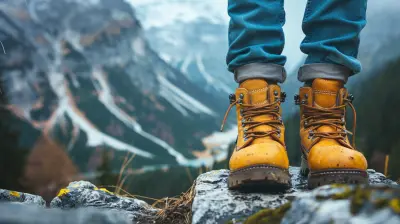Exploring Nature Alone: Hiking and Camping for Solo Travelers
7 August 2025
Ever feel like the world gets a little quieter when you're out in nature alone? No buzzing phones, no chatter, no chaos—just you, your trail, and that open sky above. Hiking and camping solo aren’t just about escaping the daily grind; they’re soul food. The kind that tastes like pine needles, morning mist, and campfire coffee.
Whether you're a seasoned outdoor enthusiast or just flirting with the idea of going off-grid by yourself, this guide will walk (and hike!) you through the ups and downs of solo adventuring. So, grab your backpack, lace up those boots, and let’s talk about why going it alone in the wild might be the best decision you'll ever make.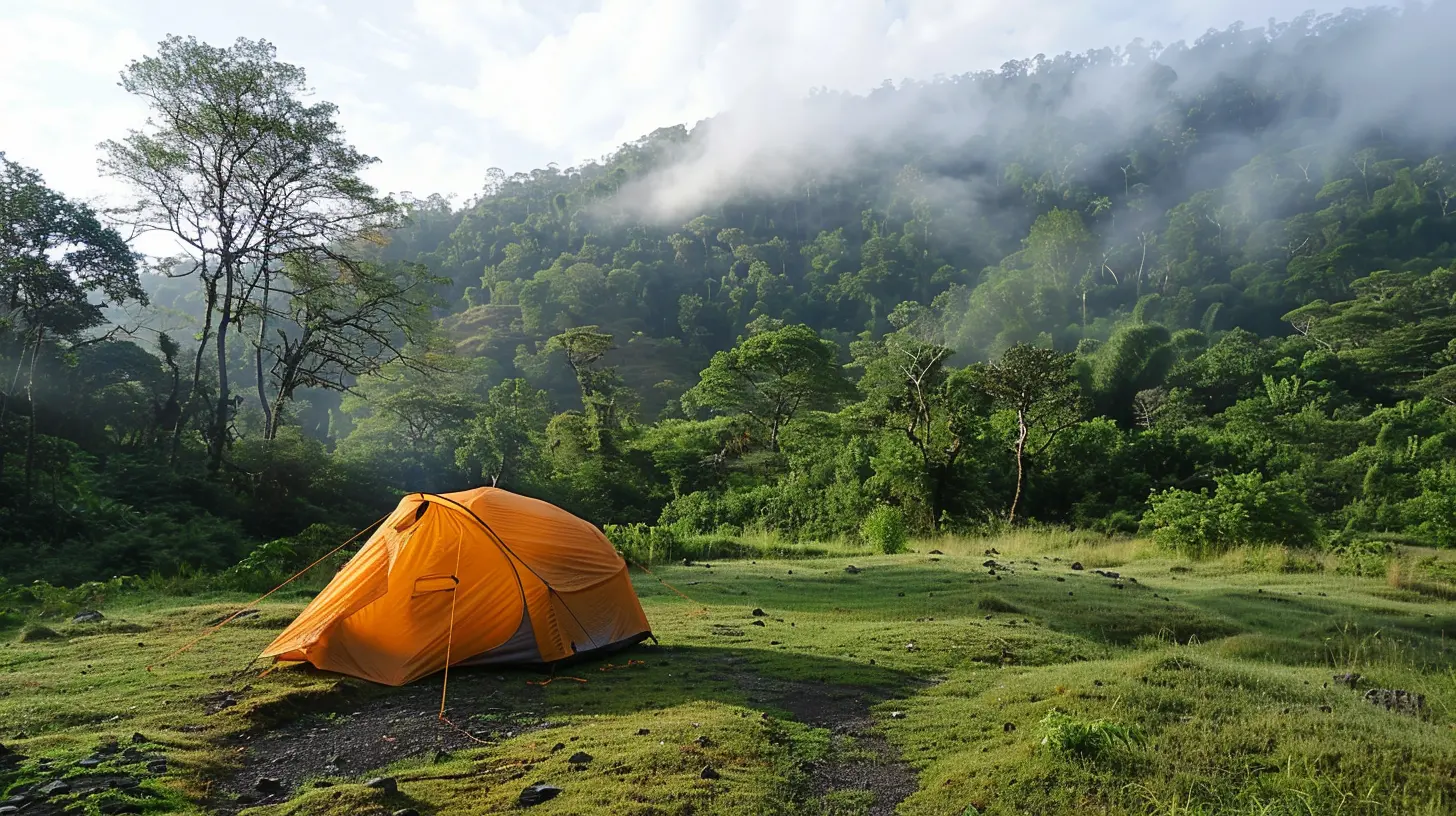
Why Go Solo? The Power of Alone Time in Nature
Let’s start with the obvious—freedom. When you’re hiking or camping by yourself, there’s no need to compromise on your pace, your playlist, or your snack breaks. You get to follow your intuition, pause when the view takes your breath away, and—if we're being real—talk to yourself without judgment.But beyond the practical perks, solo travel in the wilderness gives you something rare: uninterrupted time with your thoughts. It’s like therapy, minus the office and hourly rate. You start to listen to yourself more intently, see the world through a quieter lens, and sometimes, find answers you didn’t know you were searching for.
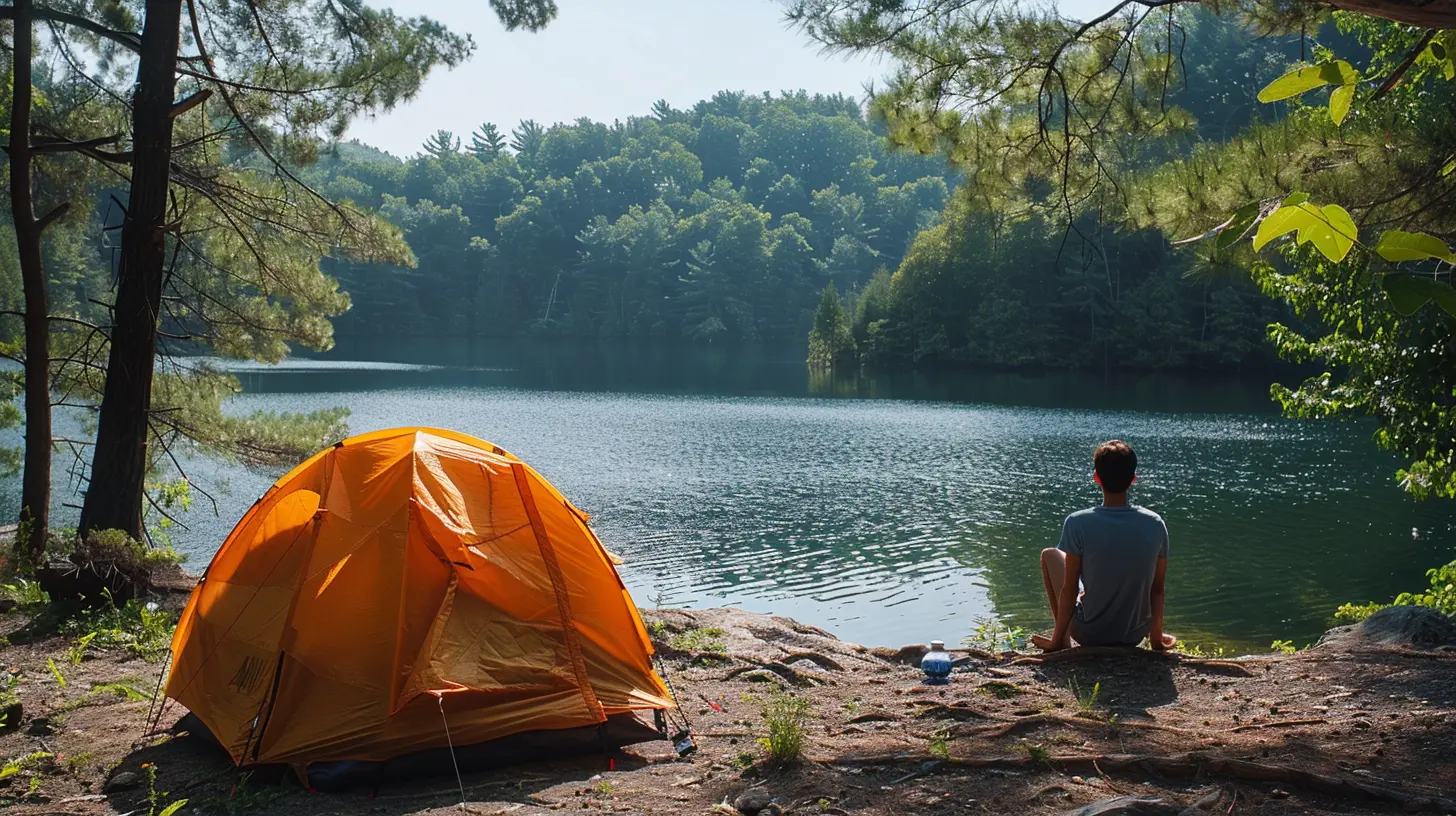
Is It Safe to Go Hiking and Camping Alone?
Short answer: Yes. Longer answer: Yes, with preparation.Solo doesn’t mean careless. Just because no one’s with you doesn’t mean you should throw caution to the wind. Nature is beautiful, but she doesn't play favorites. Plan your trip like you're prepping for a space mission. Tell someone your route, check the weather obsessively, and always—no matter how confident you feel—bring the ten essentials.
Here’s a quick refresher:
1. Navigation (map and compass or GPS)
2. Sun protection
3. Extra clothing
4. Headlamp or flashlight
5. First aid kit
6. Fire-starting equipment
7. Shelter
8. Extra food
9. Extra water
10. Repair kit and tools
These aren’t just Boy Scout rules—they can literally save your life.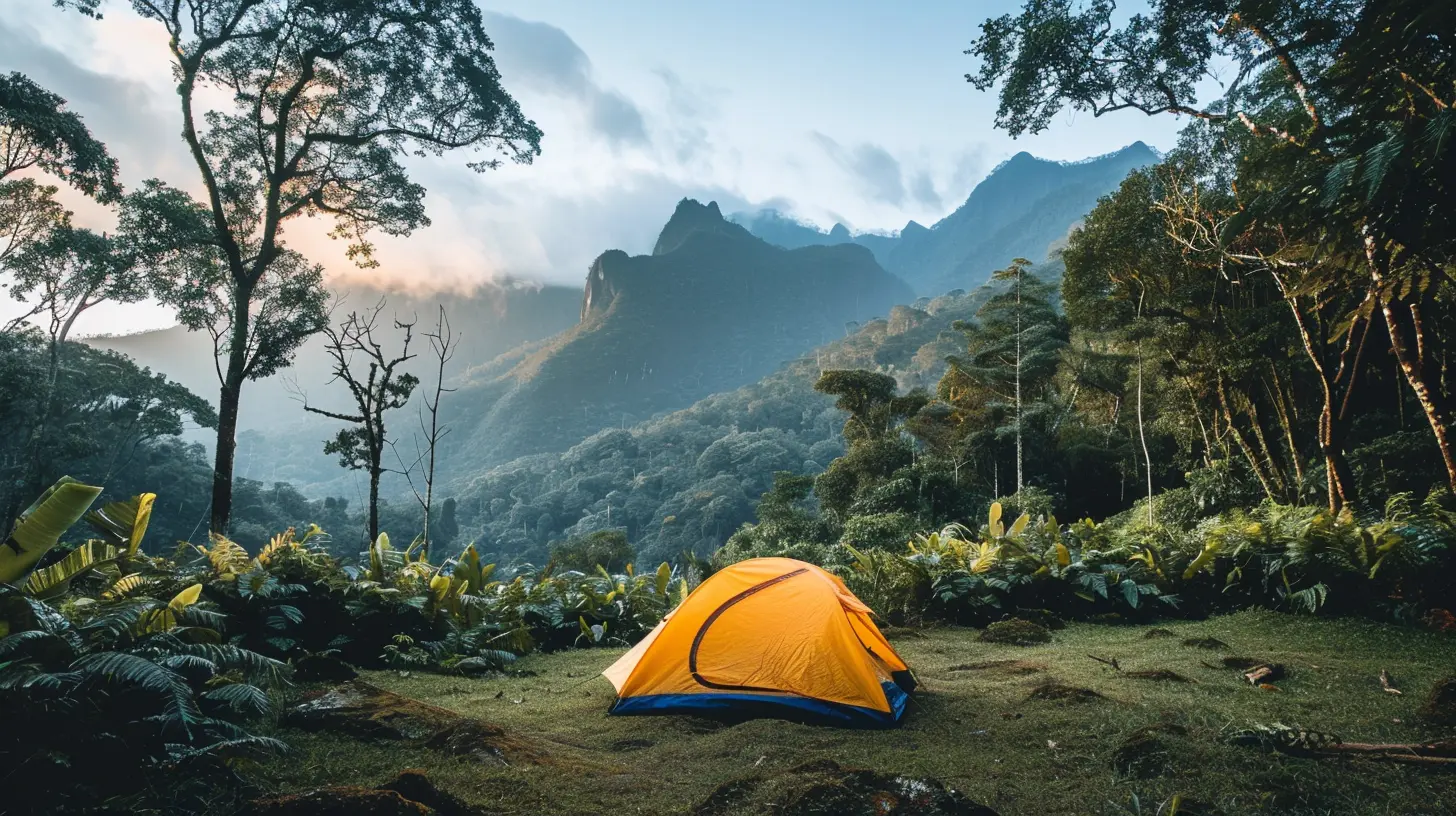
Picking the Right Trail for Your Solo Adventure
You don’t need to summit Everest to feel like a badass. Start small. Choose a well-marked trail that’s within your fitness level. National and state parks are a great starting point because they’re usually maintained and patrolled.Here’s what to keep in mind:
- Distance: Think about how far you can reasonably hike in a day, considering terrain and elevation.
- Difficulty: Be honest with yourself. If you’ve never hiked a mountain, maybe start with a gentle incline.
- Traffic: Contrary to solo vibes, trails with moderate foot traffic offer peace without total isolation—kind of like hiking with invisible friends.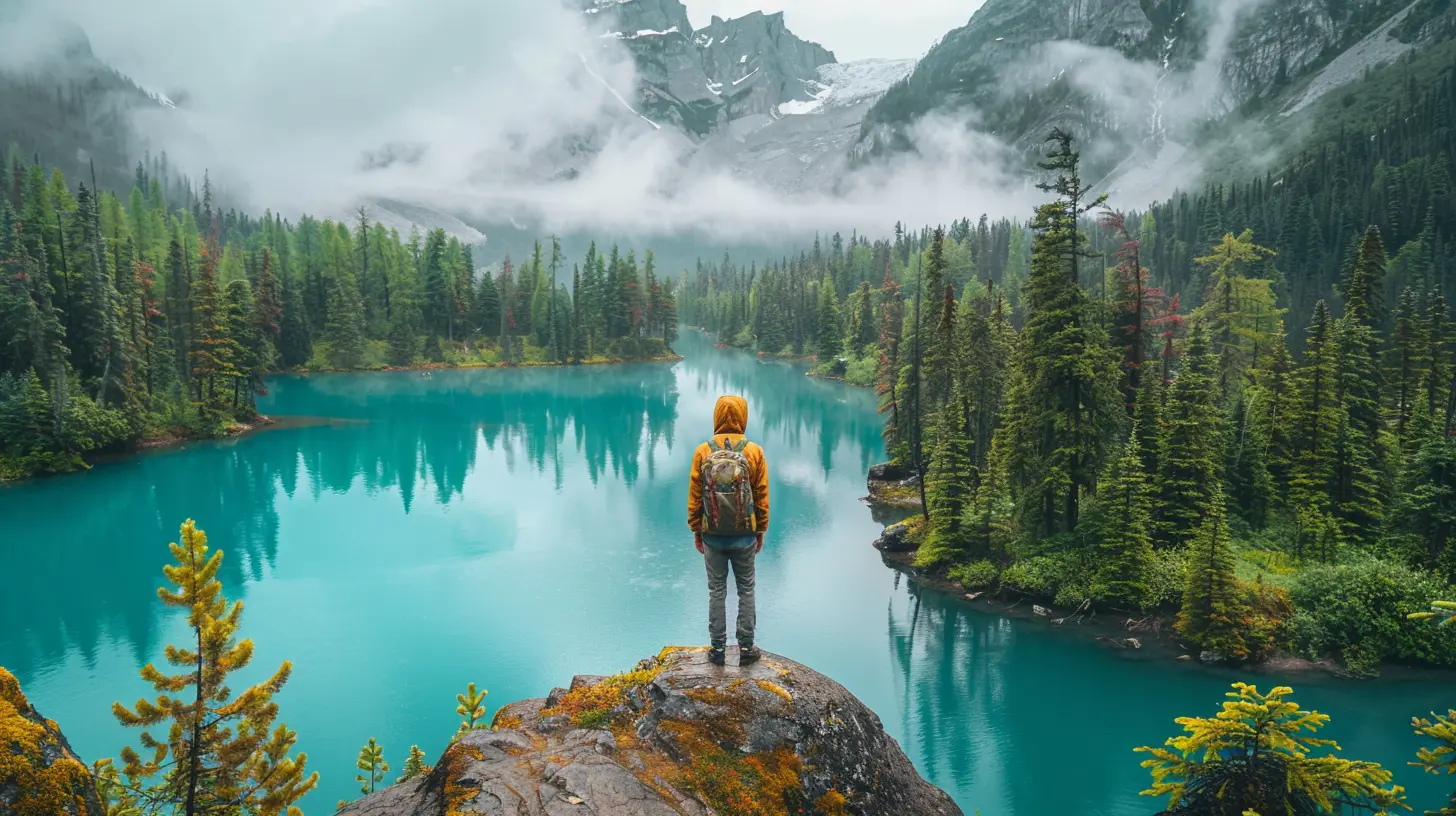
What to Pack When You’re the Only One Carrying It
Listen, your backpack is your home, your emergency kit, and your kitchen. But that doesn’t mean it has to weigh more than you do.Here’s what should make the cut:
- Lightweight tent or hammock (with rainfly)
- Sleeping bag and pad (don’t underestimate the ground)
- Portable stove or campfire gear
- A reliable water filter or purification tablets
- Plenty of food (think high-calorie, low-bulk)
- Multi-tool (because you never know)
- Satellite communicator or personal locator beacon (seriously, get one)
Oh, and your phone? Great for pictures and navigation—but don’t count on a signal. This isn’t Starbucks.
Setting Up Camp: Your Personal Wild Airbnb
Finding the perfect campsite is part art, part science. Ideally, you’ll want a flat area, away from cliff edges, falling branches (widow-makers!), and about 200 feet from any water source.Pitch your tent before dark. Nothing says “rookie camper” like trying to figure out how poles work by headlamp. Once you’re set up, take some time to just… be. Make yourself a hot meal, sip some tea under the stars, and soak it in. This is your moment.
Pro tip: Use earplugs if you're freaked out by every rustling leaf. That "bear" you're hearing? Probably just a curious squirrel.
The Magic of Morning
Waking up alone in the middle of nowhere is a strange and wonderful thing. Birds start singing while it’s still dark out. The air feels clean in a way city dwellers can only dream of. There’s something deeply satisfying about brewing coffee as the sun climbs over the horizon.Morning solo rituals hit differently. It’s just you, your thoughts, and that growing sense of "I did this." Talk about confidence fuel.
Staying Entertained When You’re Rolling Solo
Worried you’ll get bored? Not likely. Between hiking, navigating, setting up camp, and keeping your food away from wildlife (hello, bear canisters), there’s not a lot of room for dull moments.But for the quiet times, consider bringing:
- A journal (great for brain-dumping)
- A book or Kindle (nothing too heavy—mentally or physically)
- A camera (or just snap pics with your phone)
- Binoculars (get nerdy with bird watching)
- A harmonica or ukulele (if you're feeling musical)
Solo adventures let you rediscover forgotten hobbies and passions. Use the silence to create something.
Mental Challenges of Going Solo
Let’s be real: solo hiking and camping aren't all mountaintop selfies and zen moments. It gets lonely. You might feel spooked at night. And those moments when the trail seems to disappear? Panic.That’s where mindset comes in. Solo adventuring is as much a mental hike as a physical one.
Here’s how to keep your head right:
- Breathe. Sounds cliché, but it works.
- Prep well. Knowledge is power, and power calms nerves.
- Know yourself. If you start to spiral, take a break. You’re not proving anything to anyone.
- Talk out loud. It’s not weird—you’re your own best hiking buddy.
Wildlife Encounters: Be Curious, Not Clueless
When you’re alone, every snap of a twig sounds like a grizzly bear wearing tap shoes. Most of the time, it’s nothing. But yes, you do need to be smart about wildlife.- Store food properly (use bear canisters or hang bags)
- Stay on trails
- Avoid dusk and dawn hikes (prime wildlife hours)
- Make noise while hiking (especially in dense brush)
- Don’t feed animals (seriously, even that cute chipmunk)
Knowledge and respect go a long way. Treat wild animals like celebrities—admire from a distance, don’t approach, and never ask for selfies.
Documenting Your Solo Adventure
You don’t need to be an influencer to share your experience. A couple of pictures, a journal entry, or even a simple voice memo can capture the essence of your trip.And don’t forget to write a trip report when you get back. Not just for other travelers, but for yourself. It’s amazing how much you forget once you’re back in your regular life.
When (Not If) You Should Try It
There’s never a perfect time—but there’s always the right time. Don’t wait until you’re “ready.” You become ready by doing it.Start with a day hike. Then try an overnight camp. Then maybe a weekend in the backcountry. Make it gradual. Make it yours.
The trail will wait for you. Nature doesn’t rush, and neither should you.
The Takeaway: Own Your Journey
Solo hiking and camping isn’t about being alone. It’s about being with yourself—and learning to love that version of you. The one who can start a fire, navigate a map, cook a trail meal, and sleep under the stars.It’s empowering in a way few experiences are. You leave the trail a little dirtier, a little stronger, and a whole lot prouder.
So, are you ready to lace up those boots and see what you’re made of?
all images in this post were generated using AI tools
Category:
Solo TravelAuthor:

Shane Monroe
Discussion
rate this article
1 comments
Bria Martin
Thank you for this inspiring article! As a solo traveler, I truly appreciate the tips on hiking and camping. Exploring nature alone has brought me so much peace and joy. Happy trails!
August 18, 2025 at 3:08 AM

Shane Monroe
Thank you for your kind words! I'm glad you found the tips helpful. Happy trails to you!


